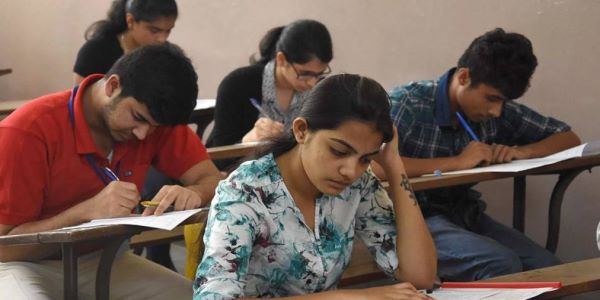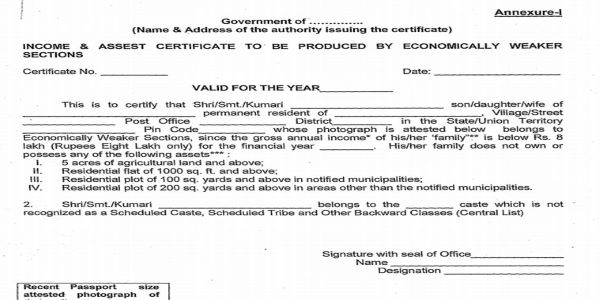For every exam, there are a set of criteria. If you do not fit the criteria, you cannot write the exam. Hence, you must also check the rules to write the exam. Before you browse the syllabus, read this. For an exam like UPSC, there is a list of rules and criteria. Hence, you must read it well in advance. The criteria are general. However, it can be complex to interpret. Thus, we will help you to read them with ease. In today’s article, we will discuss the EWS eligibility criteria for UPSC/IAS Exam. The criteria to write the UPSC exam are diverse. You need to fit in the age limit.
History of EWS Criteria for
For some posts, you also need to pass physical tests. You must also have the proper education to enter the race. Other criteria include nationality. It also includes the number of attempts. India has a wide population. Citizens come from diverse settings. Hence, there is a variety in UPSC aspirants as well. Historically, reservation is followed in jobs. It is also practiced in other public sectors. This helps us to uplift the country’s population equally. Moreover, the provision ensures equality of opportunity. Nobody must be left out. Thus, the sections that were earlier subdued, now find a good place in society. However, over the years this has created some issues. Reservations have caused communal stress. Other sections of society are also asking for similar benefits.
Issues like these created the need for a new section in society. That is the EWS. EWS stands for Economically Weaker Sections. Earlier, they did not enjoy any reservations. However, the parliament recently amended the code. EWS category general candidates can now claim a 10% reservation. It is provided in jobs and education. Hence, currently, only the EWS section within the general category enjoys this benefit. The candidate must not be covered under SC/ST/OBC. However, PH and ex-servicemen can enjoy this right. But, you must belong to the economically weaker section.
EWS Critiera for UPSC/IAS Exam
Now let us talk about EWS Eligibility Criteria for UPSC/IAS Exam. To claim the EWS Quota, you need a certificate. It is popularly known as the EWS certificate. But who is eligible for this certificate, let us read about it here. Firstly, you must be a general category candidate. Candidates covered in SC/ST/OBC reservations are not eligible. The second criteria are around income. Your family’s income must not exceed INR 8lakhs in a given year. This is the gross annual income. Further, it includes income from other sources as well. For example, business, agriculture, etc. This is the scenario for family income before you apply for the exam. If your family’s annual income exceeds this limit, you cannot claim the EWS quota.
Other criteria
Further, let us talk about the third criteria. Your family must not hold any agricultural land beyond 5 acres or more. But if your family holds land less than that, you are eligible. Hence, one must assess their land before claiming an EWS certificate. The next EWS eligibility criteria for UPSC/IAS exam is around the property. It says your family must not own a private flat area over 1000 sq. ft. Your family must not own a private plot over 100 sq yards or more. This is for plots in notified municipalities.
Note that the former talks about a private flat. The latter talks about a private plot. Hence, you must not confuse the two. The limit for a plot other than notified municipalities is 200 sq. yards or more. Thus, you must check the area of your plot. If you are in the notified areas, the limit is 100 sq yards. If you are in any other area, the limit is 200 sq. yards. As we read, the EWS criteria talk about the candidate’s family. But who is a part of the family as per the criteria? Let us read about who all are considered as a family here.
Who are a part of family for EWS criteria?
The family includes the person applying for the certificate. That is the aspirant who wishes to claim the reservation. It includes the aspirant’s parents. Thirdly, it also includes the applicant’s siblings below the age of 18 years. It also includes the aspirant’s spouse and children below 18 years if any. Your scattered property is also a part of this. It eases the calculation. This helps to get a complete view of the family’s wealth. Hence, the officials can then decide on the release of an EWS certificate.
How to get the EWS Certificate?
We talked about the EWS Criteria for UPSC/IAS exam. But how can one get the certificate? Let us see how to apply for it step by step. Usually, forms are now online. However, for the EWS certificate, there is no online provision. One needs to follow the offline way. Firstly, you have to approach local officials. That is the Tehsil. Note that the EWS certificate is also known as the ” Income and Assets Certificate “. Once you reach the tehsil, you need to submit some basic documents. The process will be explained by the officials. The papers will include an aadhar card, pan card, income details/proof, etc. The officials will verify your papers. On approval, the officials will issue an EWS certificate.
Make sure that the certificate is issued by the right officials. Let us check who includes the rightful officials. Firstly, it includes commissioners/magistrates. You can also get a certificate from a revenue officer. However, he must not be below the rank of a Tehsildar. Or you can get the certificate signed by a sub-divisional officer. However, he must belong to the area of residence of the applicant. Note that general category criteria in other areas remain the same. Hence, the age limit, cutoff, and attempts remain unchanged. Hence, they enjoy a 10% reservation only.
Difference b/w EWS and Others
Moreover, one must not confuse EWS with OBC. OBC, ST, ST, PH candidates already enjoy some relaxed provisions. They enjoy reservations from the very start. However, general category candidates did not have a similar privilege. It was assumed that they are economically stable. However, over the years, the tables have turned. Hence, now the general category is also secured under this. But only the economically weaker sections are considered. The other general category aspirants enjoy no such benefits. For more on the UPSC EWS certificate: click here.
Steps to use EWS certificate for UPSC/IAS Exam
Let us now quickly summarize the steps to avail the EWS Criteria for UPSC/IAS exam. Firstly, you need to check your income status. You must fit in the income limits. Secondly, you must collect papers to prove the same. Further, you must calculate your land//property holdings. After you assess them, make sure you have all the documents. Check if you fit in the given limit. If yes, then proceed ahead. Make sure your gross income is well within the defined limit. If not so, you cannot enjoy the reservation.
After checking the criteria, collect papers and compile them. It is better to keep them in one place. Further, you need to visit the local officials. Go to your tehsil office. The official will verify your papers. Then, they will assess the claim. Get your certificate signed by the right authority. We have already listed the list of the right officials. You should not accept the papers without the right official’s sign. Validate your document. This completed your certificate approval process.
Now comes availing the benefit. When, where, and how to use this certificate? You can use the EWS certificate in two areas majorly. Firstly, you can use it for education. Secondly, you can attach it for public sector jobs. Hence, you can use this in UPSC. During your application, you need to fill an online form. While filling this form, you must upload the certificate. After uploading it, you will get a 10% reservation benefit. However, you will get the benefit only when you have the needed score. Moreover, you cannot claim other benefits. For eg: extra attempts or age limit extension. For more such articles: click here.
FAQs
We know that one can avail of the benefits of EWS eligibility criteria for the UPSC/IAS exam. However, there is a validity of the certificate. The document is valid for one year only. Hence, candidates need to renew it every year. You can do it every year after 1st April.
The EWS certificate notes the income and assets of a family. Hence, it is also called the “Income and Asset Certificate”.
The EWS certificate is issued state-wise. You need to visit your local tehsil office to claim the reservation. Every local authority issues the certificate. But, you can use it to apply for national-level exams as well.
Editor’s Note | EWS Criteria for UPSC
Here, we will conclude our article. In today’s article, we talked about the EWS Eligibility criteria for UPSC/IAS exam. Thus, we noted the income limits. We also noted the property limits. Further, we spoke about who includes family in the definition. Finally, we talked about how to apply for the document. Lastly, we talked about the use of the certificate in UPSC. Hence, we hope that we have covered all your doubts. Moreover, we have tried to imbibe all imp aspects about the topic here. We hope that this article proves of great use in your application.











